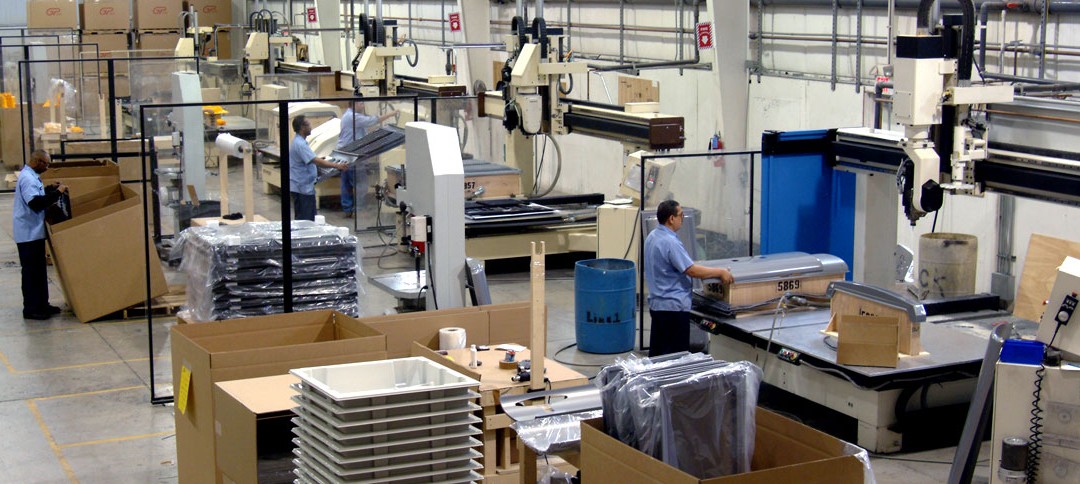
by Jen Hellmann | Jan 23, 2019 | Articles
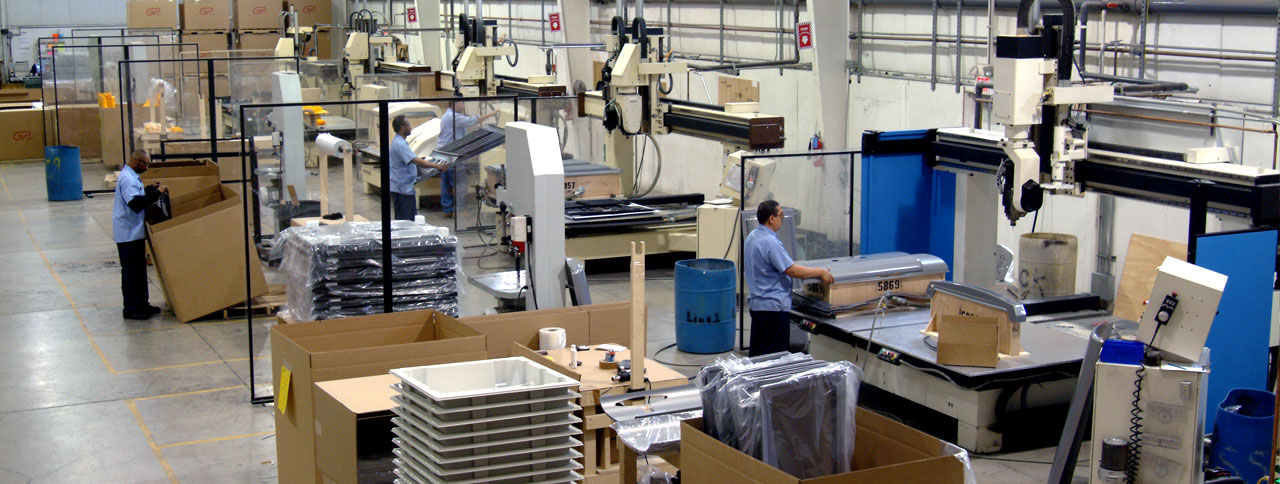
Upgrading to thermoforming from metal has many advantages that provide the aesthetics required in today’s market at minimal cost.
There are several benefits for converting metal to a thermoformed part. The four most important (benefits) are:
- Cost
- Weight
- Design Flexibility
- Material advantages
COST
- The more complex the geometry of the part’s design the greater the cost savings. A customer may experience a cost savings of up to 50 percent on a conversion to plastic on a complex part.
- As the part’s complexity and the production volumes increase the advantages of thermoforming grows exponentially. In a metal fabrication, investments in component ancillary tooling may be needed (stamping dies) to achieve shipment releases and cost reductions.
In-direct benefits include:
- Decrease in weight will reduce assembly cost (one assembler rather than two).
- Customer perception of an advanced product due to the flexibility of design and materials available to General Plastics.
WEIGHT
- Thermoforming resins allow engineers to obtain the properties required, while allowing designers the flexibility to achieve the aesthetics required and reduces the cost and weight of the product.
- Depending on the metal alloy, thermoformed plastics may be up to 75 percent lighter based upon specific gravity.
In-direct benefits include:
- Fuel efficiency.
- Decreased emissions.
- Decreased noise and vibration levels.
- Lower overall weight of the product.
- Logistics/freight advantages.
DESIGN FLEXIABILITY
- Ability to produce complex shapes and designs without secondary assembly steps. These same shapes manufactured in metal are expensive and may require ancillary stamping and tooling.
- Ability to form logos and warning labels as well as other branding directly into the part.
- Mating points easily designed in the part.
- Multiple finishes on the same part.
- Part Consolidation.
Indirect benefits include:
- Decreased cost.
- Decreased assembly time.
- Decreased part numbers, carrying costs and inventory.
- Increased aesthetics.
- Part consistencies and repeatability from part-to-part as well as lot-to-lot.
MATERIAL ADVANTAGES
- There are many thermoforming resins available – HIPS, ABS, PC, PE, TPO, acrylic and alloys – the correct material is matched to achieve the clients’ needed requirements and pricing.
- Materials meet flame, smoke and toxicity requirements that are required by the transit industry.
- Monolithic color eliminates painting.
- Texture availability without cost implications on sheet.
- Texture tooling for specific texture requirements.
- No corrosion.
General Plastics, Inc. is your full-service thermoforming solution with more than 30 years of experience with expertise in the following applications:
- Pressure forming (6’ x 10’)
- Vacuum forming (6’ x 10’)
- CNC & Robotic trimming
- Full assembly and sourcing
- Packaging and kitting
- Prototype and production tooling
- DFMA assistance
- Design freedom for undercuts, texture and color
To discuss your Thermoforming needs, call General Plastics, 414-727-6855; Toll Free: (888) 611-0270 or email us sales@genplas.com.

by Jen Hellmann | Nov 7, 2018 | Articles
General Plastics, Inc. is not only located in Milwaukee, Wisconsin, but it is a valuable member of the community, willing to work with others to solve concerns by applying what the company knows best – conceiving problem-solving solutions and producing solutions through thermoforming plastics. Two examples of the company’s recent community work involved the Milwaukee Public Schools (MPS) to solve issues that are not available in the general market-place.
The first project was to create a way to cover the lead filter on every drinking fountain in the MPS system. The manufacturer of the fountains and filter did not have a cover and the MPS master plumber was concerned with the possibility that kids could damage the exposed filter.
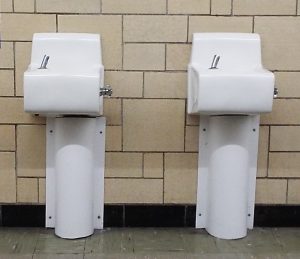
The original intent for this filter was to be installed under a cabinet. MPS provided a steel prototype that General Plastics converted to plastic.
The second project was to help MPS with its issue of having the schools’ digital clocks from being vandalized and destroyed. MPS could not find a cover to protect the clocks on the general market, so General Plastics developed a concept and solution to the problem making covers for the clocks out of plastic.
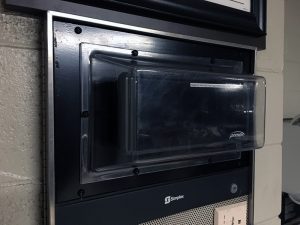
“We believe it is our civic responsibility to get involved and help institutions, such as MPS, in solving serious concerns. As in the case of these two examples, our experience and expertise in plastics was the solution that were not solvable in the general marketplace,” said Bob Porsche, Owner and President, General Plastics, Inc.
General Plastics, Inc. is your full-service thermoforming solution with more than 30 years of experience with expertise in the following applications:
- Pressure forming (6’ x 10’)
- Vacuum forming (6’ x 10’)
- CNC & Robotic trimming
- Full assembly and sourcing
- Packaging and kitting
- Prototype and production tooling
- DFMA assistance
- Design freedom for undercuts, texture and color
To discuss your Thermoforming needs, call General Plastics, 414-727-6855; Toll-Free: (888) 611-0270 or email us sales@genplas.com.
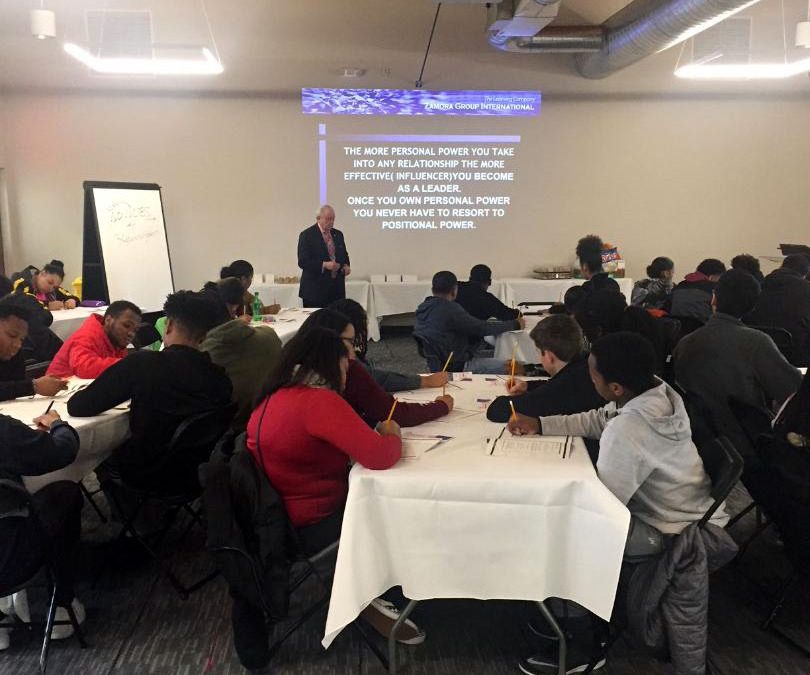
by Jen Hellmann | Aug 24, 2018 | Articles
Last spring, General Plastics hosted a five-hour Leadership Workshop in its Training Center for 60 Brown Deer High School students. The students were members of DECA (previously known as Delta Epsilon Chi and Distributive Education Clubs of America) and other student leadership groups.

The program, THE TOOLS OF LIFE AND LEADERSHIP, was presented by Chuck Zamora, President of Zamora Group International – The Learning Company and focused on several key leadership skills, including:
- A clear definition of success.
- How to grow your leadership skills.
- The difference between Personal Power and Positional Power.
- Communication is a vital component to achieving success: “Communication – It’s Not Just All Talk”
- Why goals are so important. “If You Don’t Know Where You Are Going, you Might End Up Where You Don’t Want to Be”.
Mr. Zamora is an international speaker, and, to date, has delivered THE TOOLS OF LIFE AND LEADERSHIP to more than 92,000 students on two continents.
According to Bob Porsche, Owner and President, General Plastics, Inc., “The students were an amazing group and interacted well with our guest speaker.” Participants of this and other student training programs offer students good experiences in learning about the plastics industry and expands their future career opportunities.
“General Plastics endeavors to be involved with area schools in the industry and welcomes the opportunity to host similar programs for our community’s future leaders,” said Mr. Porsche.
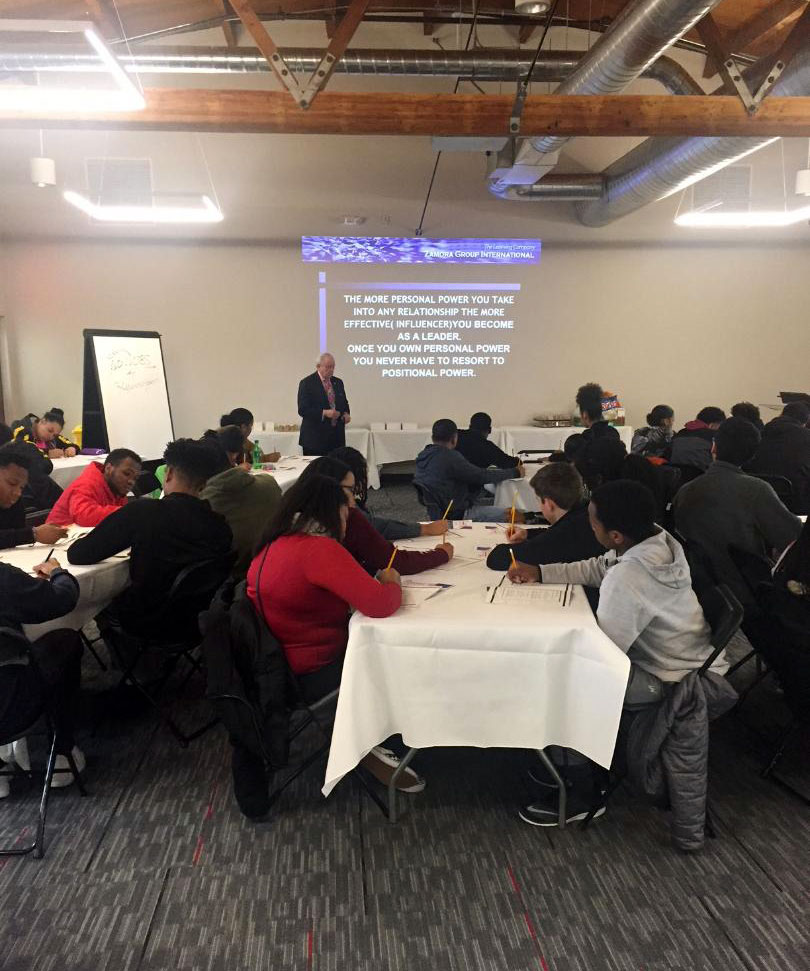
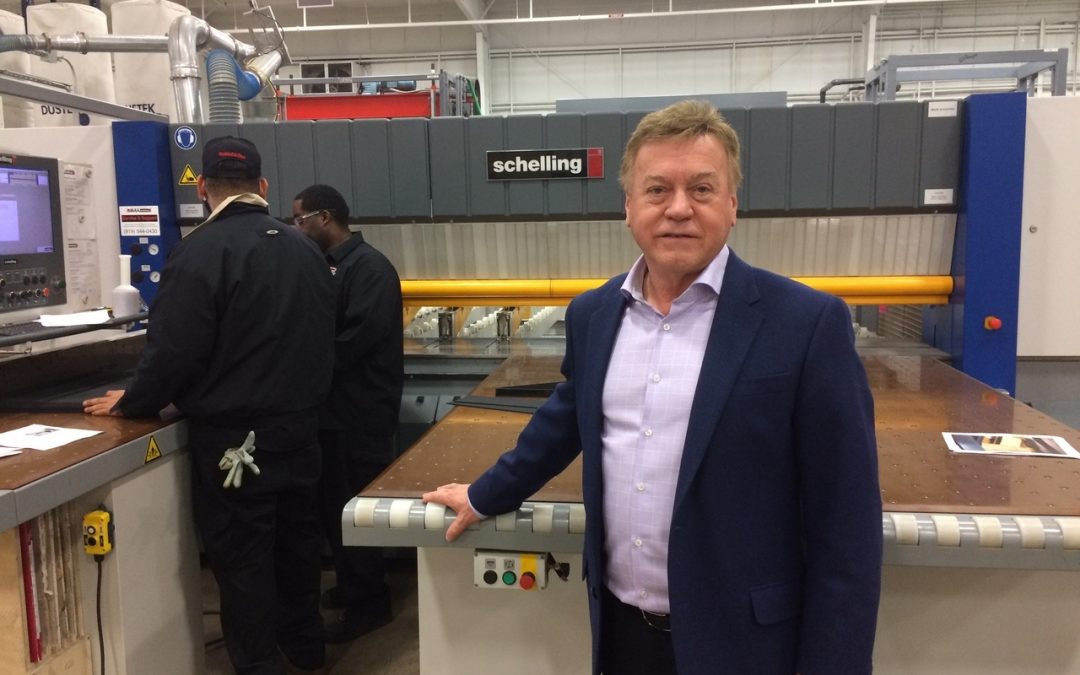
by Jen Hellmann | Jun 6, 2018 | Articles
By BILL BREGAR
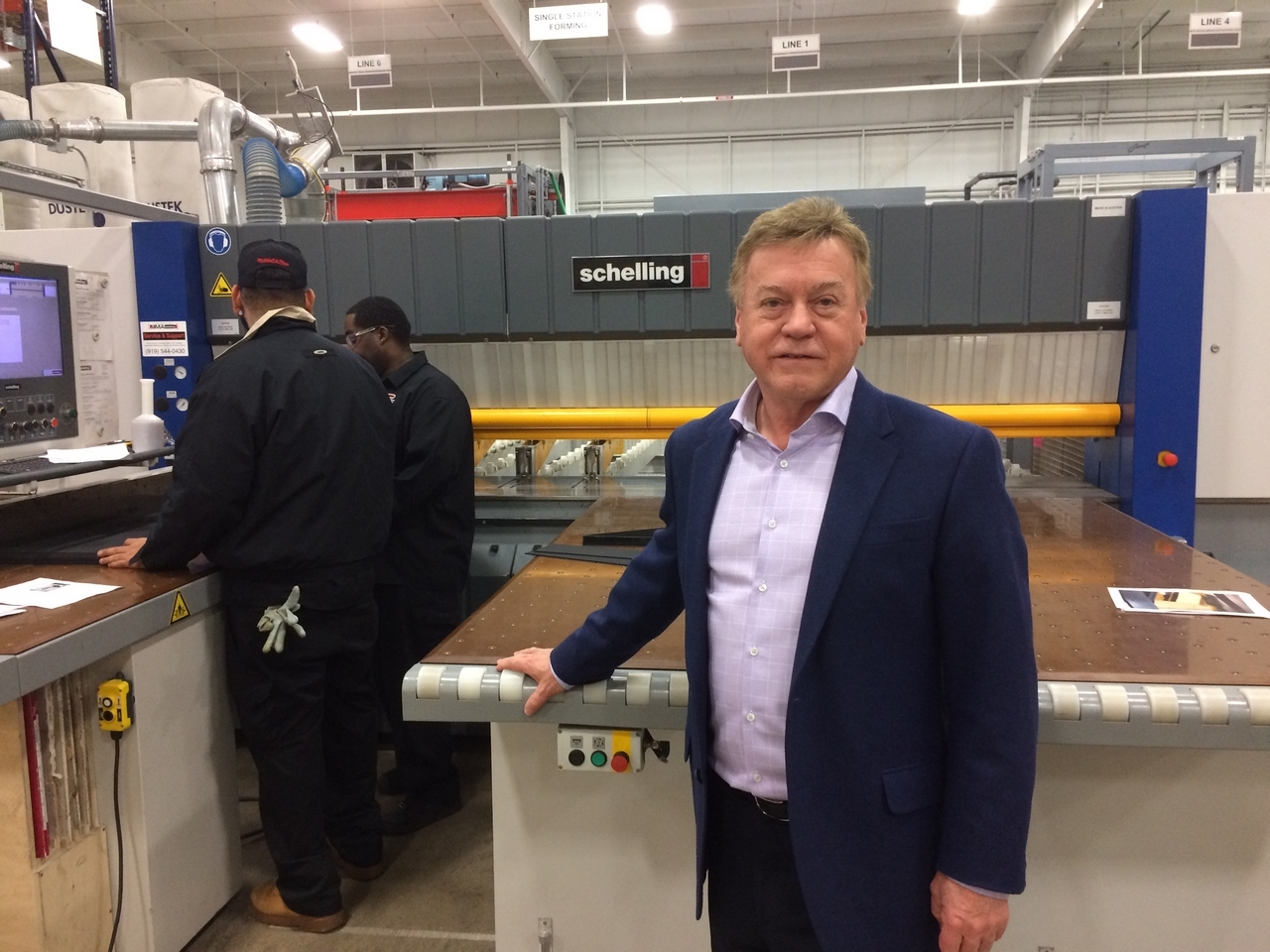
Robert Porsche at General Plastics Inc. in Milwaukee. Don Loepp
A major plant expansion has freed up space for additional offices and a training area at General Plastics Inc. in Milwaukee, and it’s right on time, since the Milwaukee industrial thermoformer is adding people to key new positions.
Plant Manager Patrick Cain said the 76-employee General Plastics is beefing up its skill sets and getting more organized as it wins new customers. Some of them are large companies.
“For them to even consider you, you have to be qualified,” Cain said.
In January, General Plastics opened 11,000 square feet of office space. Only about 1,000 square feet of that was existing offices. The rest was in former factory space that became available when the thermoformer added 42,000 square feet onto its plant, doubling the company’s manufacturing space in 2016.
The manufacturing expansion also allowed the company to add a dedicated training area, expand the size of its quality laboratory, mold maintenance shop and fixture room, and improve the lunch room, Cain said.
General Plastics doubled production space with the addition, a $4 million investment. The company also reorganized production after the plant expansion, moving equipment to improve lean manufacturing, he said.
“We doubled the size of the manufacturing space but we actually reduced the total distance the part travels,” Cain said. The company also eliminated an off-site warehouse and brought that in-house.
“We’re revamping our product launch process,” Cain said. The company also is adding “swim lanes” and reduced the total distance parts travel through the shop. The Wisconsin Manufacturing Extension Partnership sent a consultant in to help, and bring in a fresh set of eyes, he said.
General Plastics won a Sustainable Business Award from the Wisconsin Sustainable Business Council for the plant expansion, which included energy efficient lighting and other environmental improvements.
General Plastics runs some of the industry’s largest forming machinery. Key markets include transportation, construction, agriculture, point-of-purchase display, medical and dunnage.
New hires include an additional customer service representative, a product launch person, a thermoforming process engineer, a newly created position of continual improvement supervisor, and a production manager.
The company is now hiring a maintenance supervisor to oversee its three-person maintenance/tooling department.
As plant manager, Cain was handling some of duties, but now the supervisors will report directly to the new production manager on a daily basis. Cain will have them report to him weekly. Cain’s title remains the same, but he’s getting more involved with customers and overall strategy as General Plastics grows and gets new customers.
General Plastics President Robert Porsche said the company is getting Cain into a position of longer-term vision “rather than looking at day-to-day crisis management.”
Cain said that bigger customers, especially, do a lot more auditing of suppliers. “A lot of my time was getting pulled away from the shop floor. So part of it was the strategy of getting me more directly involved with the growth plan, and the customers,” he said.
Porsche said Crain is involved in ISO and other certifications, so he’s in a good position to work with larger customers.
General Plastics also added a human resources person, after mainly using temporary services to find new full-time employees. Wisconsin’s unemployment rate has fallen below 3 percent, among the lowest in the country.
“It’s just becoming more and more challenging to find good people,” Cain said.
Since the plant expansion, General Plastics has added a dual-table robotic trimming station and a single-station thermoformer. The company now has 11 pressure forming and vacuum forming machines: eight single-stations and three rotary machines.
Porsche said the company is adding another CNC trimming machine later this year.
In May General Plastics added a granulator to size-reduce trim scrap, which is sent back to a sheet extruder. “We get more for our trim that way and there’s a lot less trucks going back and forth, freight-cost wise,” Cain said.
Meanwhile Porsche is looking forward to the Society of Plastics Engineers’ Thermoforming Conference, scheduled for Sept. 24-26 in Fort Worth, Texas. He will be honored as Thermoformer of the Year — for the second year in a row. The 2017 conference, which was set for Orlando, had to be canceled when Hurricane Irma pounded Florida — so Porsche has had to wait a year before getting the top award.
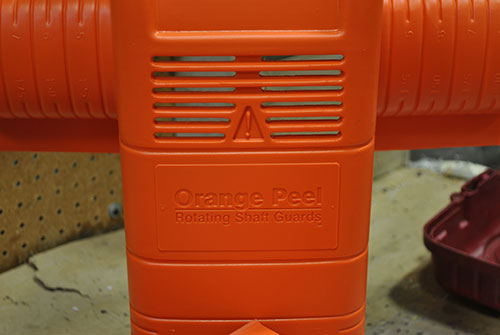
by Jen Hellmann | Apr 26, 2018 | Articles
General Plastics, Inc. is a premier manufacturer and supplier of thermoformed plastic components, offering pressure thermoforming, vacuum thermoforming, trimming and assembly value-added services.
Thermoforming is a method of processing cast or extruded plastic sheet into finished parts up to 0.500 inches thick. The raw material is heated to its specific thermoforming temperature and immediately shaped to the desired configuration. At processing temperatures, the material is very pliable, enabling it to be formed rapidly into exceptionally detailed components with a minimum of force.
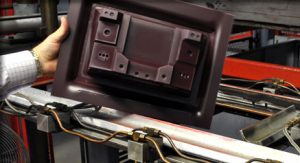
Pressure is the key in forming the final parts. That pressure can be either positive (pressure forming), or negative (vacuum forming), and is maintained until the part has cooled. The processes can be utilized to mold a single part per cycle, or multiples/families of smaller parts per cycle.
Thermoforming is a single sided process with only one side of the sheet controlled by the tool surface. The best uses for thermoforming is when production quantities range from 250 to 5000 annually. This process offers lower tooling costs, faster product development cycles, and can produce parts with color and texture.

Advantages of Thermoforming
- Thermoforming tooling costs less in comparison to injection molding.
- Prototype tooling using cost effective molds.
- Thermoforming tooling is faster to produce – 6-8 weeks -vs- 12-20 weeks – which means your product is quicker to market.
- Overall cost of a thermoformed part when tooling is amortized and may be significantly less over time.
- Tooling is more adaptable to design changes. There is little to no maintenance on tooling and it does not wear out.
- Thermoforming could maintain dimensional tolerances for part sizes as expansive as 6’ x 10’
- There is less molded in stress and the end-product will not experience knit lines or sink marks (in a thermoformed part). This means that in many cases the aesthetics of a pressure formed part will exceed an injection molded part.
- An etched texture in a pressure form tool will yield aesthetics challenging injection molding.
- Allows shipments to be conveniently scheduled to reduce inventory.
Plastic injection molding can be used to make plastic parts for similar applications. Injection molding has a very high tooling cost, but for large quantities, the cost per part is less. Here are some points to consider in making your Injection Molding -vs- Thermoforming decisions.
- Thermoforming is a single wall construction
- Attachment points such as bosses and/or inserts must be done secondarily in thermoforming since it is a one-sided tooling process whereas injection molding these details are molded into the product.
- It may be more cost effective to bond a metal bracket, which can act as a stiffener as well as an attachment point.
- Thermoforming will yield a part with variable wall thickness which is based on part geometry as well as processing techniques. Another benefit of this feature is the part weight may be less, which means it is less costly to ship.
General Plastics, Inc. is your full-service thermoforming solution with more than 30 years of experience with expertise in the following applications:
- Pressure forming (6’ x 10’)
- Vacuum forming (6’ x 10’)
- CNC & Robotic trimming
- Full assembly and sourcing
- Packaging and kitting
- Prototype and production tooling
- DFMA assistance
- Design freedom for undercuts, texture and color
To discuss your Thermoforming needs, call General Plastics, 414-727-6855; Toll Free: (888) 611-0270 or email us sales@genplas.com.


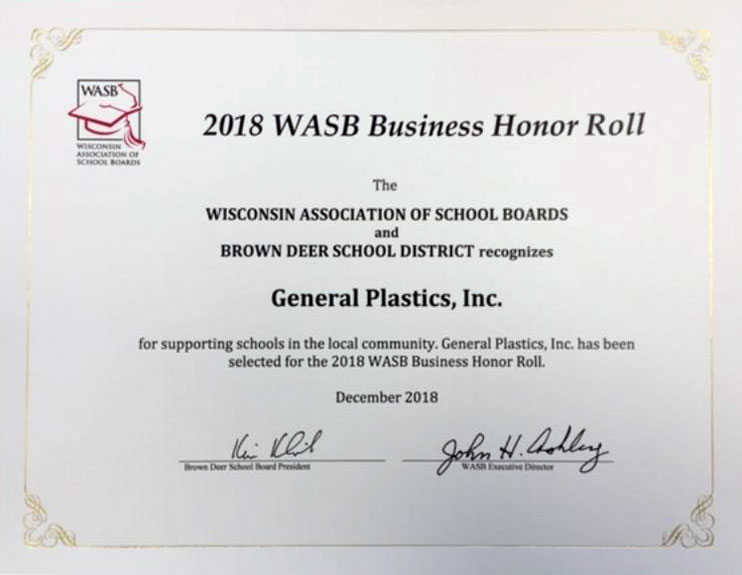












Follow Us!